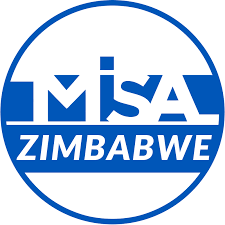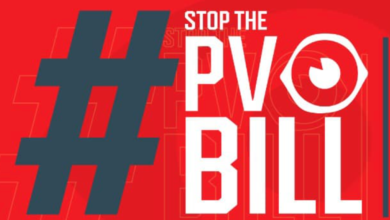MISA Zim engages SADC over safety of journalists ahead of elections

The Media Institute of Southern Africa (MISA) Zimbabwe, has raised concerns with the SADC Electoral Advisory Commission (SAEC) about journalists’ safety as the country heads towards elections.
The two organisations met on April 15, 2023, in Harare where MISA Zimbabwe was represented by its National Director, Tabani Moyo, and Chairperson of the Trust Fund Board, Cris Chinaka.
SEAC was represented by its Chairperson, Judge Ticheme Dlamini and his Deputy, Advocate Notemba Tjipeuja.
In his remarks, Moyo said that recent elections had seen an upsurge in attacks on journalists, necessitating the need for measures to be put in place to guarantee the protection of media workers throughout the electoral period.
One of the mitigation actions in which MISA Zimbabwe was involved was the adoption of the Police Media Action Plan in December 2017.
“This has seen MISA Zimbabwe and other media support organisations engaging the police throughout the country in an effort to make sure that the safety of journalists is prioritised, more so ahead of the 2023 elections,” Moyo said in a statement.
Moyo voiced concerns that Zimbabwe’s media environment was deteriorating, with the country dropping from 128 in the 2017 Reporters Without Borders World Press Freedom Index to 137 in 2022.
“The environment continues to deteriorate,” he noted.
Moyo also stated that previous observer missions had found that the Zimbabwe Broadcasting Corporation (ZBC)’s coverage of political parties was skewed in favour of the ruling Zanu PF, despite constitutional provisions for equitable access to the national broadcaster.
Furthermore, the MISA Zimbabwe delegation expressed concern about the ongoing dual accreditation procedure, noting that it could impede access to information since journalists must register with the Zimbabwe Media Commission and authenticate with the Zimbabwe Electoral Commission during elections.
“These registration procedures are time-consuming and may deter some journalists from enrolling with the election management agency,” he said.
Another source of concern said the MISA Zimbabwe is access to the internet, which was shut down by the government in 2019.
Moyo pointed out that internet access was expensive, which could limit citizens’ access to knowledge and participation in issues that impact them.
Surveillance may be on the rise, according to Moyo, who added that this could be the result of the 2020 Maputo Summit, at which SADC Heads of State and Government resolved to take preventive measures against external interference, the impact of fake news, and the abuse of social media, particularly in electoral processes.
“Since then, the Minister of Information, Publicity and Broadcasting Services Senator Monica Mutsvangwa has warned that the authorities had set up social media monitoring teams to monitor what people send and receive on social media,” read the statement.
In March 2020, the now-late army commander, Lieutenant-General Edzai Chimonyo, said the army would start snooping into private communications between citizens to “guard against subversion,” claiming the use of social media posed a threat to national security.
In December 2022, the Citizen Lab Toronto reported Zimbabwe to be a customer of Circles, a surveillance firm that exploits weaknesses in the global mobile phone system to snoop on calls, texts, and the location of phones around the globe.
This came as the government also enacted the Cyber and Data Protection Act, which criminalises defamation and the publication of false information, despite previous Constitutional Court rulings that this has a ‘chilling’ effect on freedom of expression.
The government is also in the process of enacting the Private Voluntary Organisations Amendment Bill and amending the Criminal Law (Codification and Reform) Act – two pieces of legislation, which Moyo said “could have far-reaching consequences on freedom of association and expression.”
Chinaka added that since misinformation and disinformation were on the rise and media advocacy groups were engaging political organisations in an effort to mitigate the effects of the disinformation disorders.






